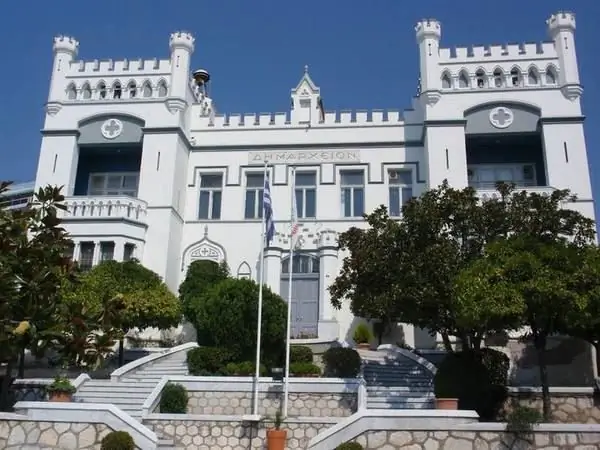
Description of the attraction
Built in the late 1890s as the residence of the Hungarian tobacco magnate Baron Peter Herzog (or Pierre Herzog) of Budapest, the Kavala Town Hall is one of the classic tobacco barons' mansions. Herzog was an extremely wealthy banker, grain producer and tobacco merchant, an energetic businessman and passionate collector. He founded the Tobacco Trading Company Herzog and Company, operated in Kavala by Adolph Wicks, and acquired a de facto monopoly on Macedonian tobacco. By 1905, he had become the main supplier of the Ottoman Sultan in Istanbul.
Peter Herzog was one of the entrepreneurs who promoted free trade in the Ottoman Empire. Until the mid-19th century, the Sultan's government and officials tightly controlled trade and prices for goods such as tobacco, and were a significant hindrance to foreign investors and profits. Thanks to well-conducted negotiations with lucrative concessions from the Turkish authorities, Western entrepreneurs were able to introduce new methods of production, processing, trade and delivery, and, accordingly, earned more, covering most of the domestic and foreign markets. Tobacco has become a highly profitable budget item as the demand for it has grown rapidly both in Turkey and internationally, and smoking tobacco, in particular Balkan and Turkish blends, has become fashionable.
For centuries, the city of Kavala was located within the walls of a cramped citadel. Outside construction was allowed in 1864, and warehouses, factories and homes of the wealthy sprang up almost immediately around the harbor. There appeared many mansions and other buildings of "tobacco barons" of very unusual, outlandish architecture, completely alien to the Turks and Greeks.
With battlements, miniature towers and other decorative elements, Peter Herzog's house is reminiscent of a Gothic castle in central Europe. After the death of the owner, his son, Baron Mor Lipota Herzog, sold the house to another tobacco company in 1921. Some time later, the company was forced to sell the house due to debts, and it was acquired in 1937 for the mayor of the city, Athanasiou Balanou. Since then, the mansion has served as the town hall of Kavala.
Several years ago, the Duke's descendants opened lawsuits to restore the right to works of art from the family's collection, which were looted during World War II.






